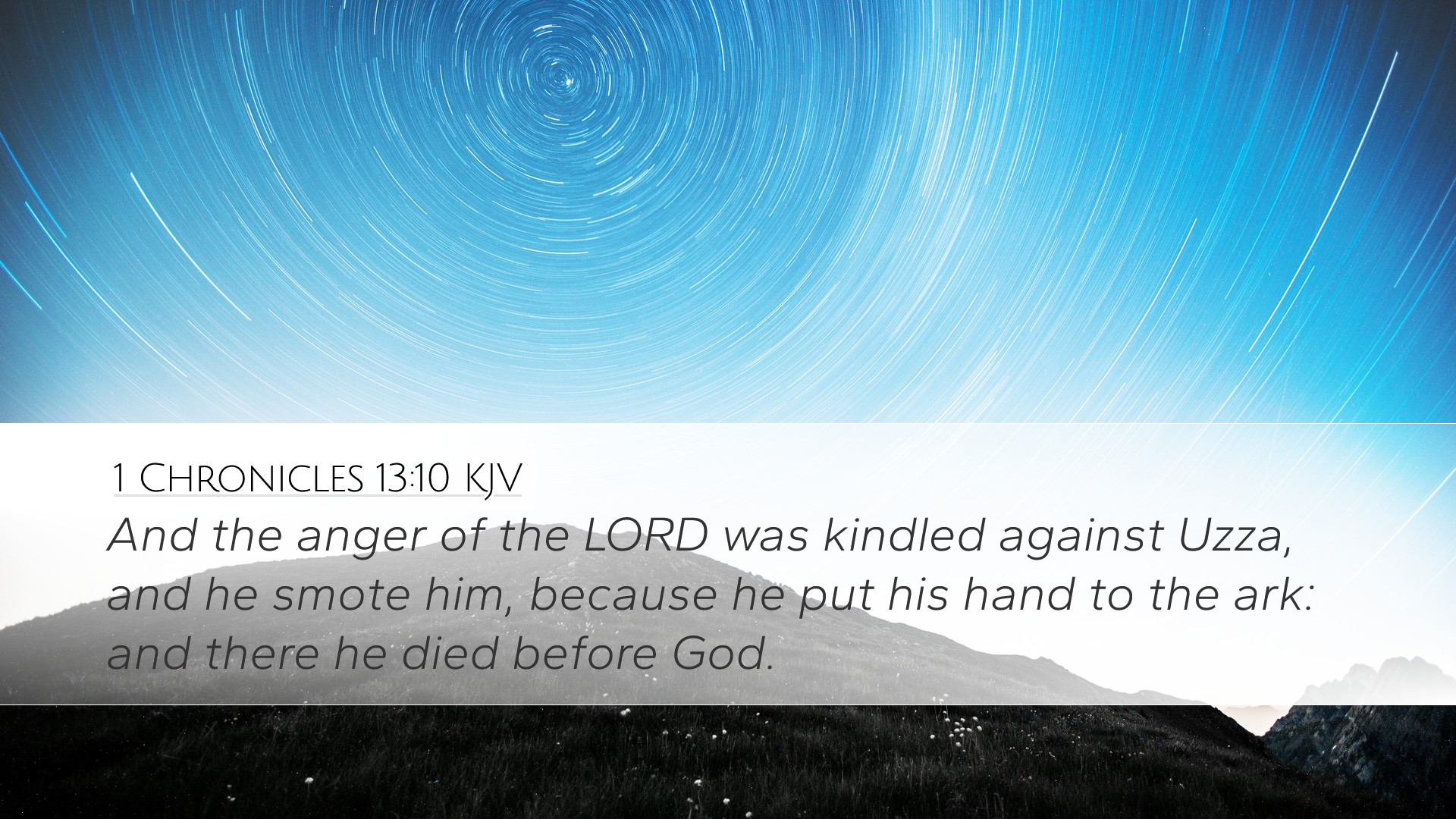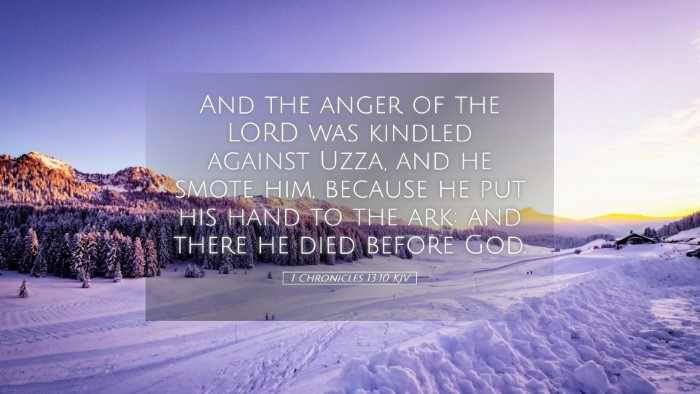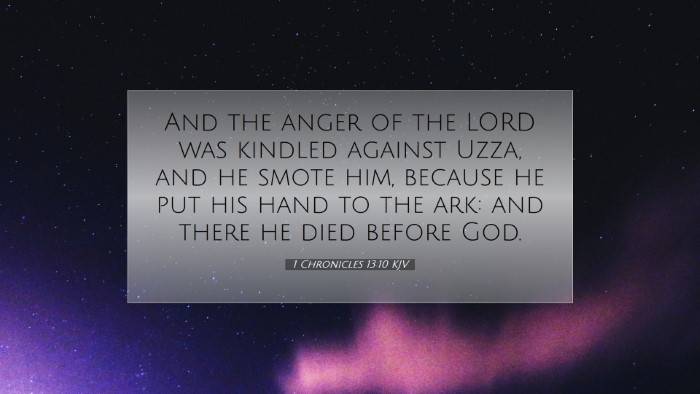Commentary on 1 Chronicles 13:10
Introduction: The verse under consideration, 1 Chronicles 13:10, recounts a pivotal moment in Israel's history concerning the transportation of the Ark of the Covenant. It serves as a critical juncture that reflects the attitudes towards divine presence and reverence, providing ample material for theological reflection.
Text of the Verse
“And the anger of the LORD was kindled against Uzza, and he smote him; because he put his hand to the ark: and there he died before God.” (1 Chronicles 13:10)
Contextual Background
The narrative here is situated during the reign of King David, who sought to recover the Ark of the Covenant, which had been neglected. This ambition reflects David's desire to centralize worship and establish a strong national identity under the worship of Yahweh. However, the means of transporting the Ark becomes a matter of divine protocol as instructed in the Law.
Historical Setting
The Ark of the Covenant, a sacred object embodying God's covenant with Israel, had significant religious and national importance. The manner of handling the Ark was stipulated in the Mosaic Law (Exodus 25:14-15; Numbers 4:15), which specifies that only the Levites were permitted to carry it by the poles, as touching it directly was forbidden and met with severe consequences.
Theological Insights
This verse highlights several key theological themes significant for pastors, theologians, and students:
- Holiness of God: The act of Uzza touching the Ark reflects a lack of reverent understanding of God's holiness. The immediate consequence of his action illustrates that proximity to God requires both respect and adherence to divine mandates.
- Divine Justice: God’s anger signifies that His standards must be met, emphasizing that disobedience, even in a seemingly innocent act, carries weighty repercussions. This reflects the seriousness with which God regards His commandments.
- Leadership Responsibility: David’s failure to ensure proper protocol in transporting the Ark places guilt on his leadership. This serves as a sobering reminder to spiritual leaders regarding their responsibility in guiding their communities according to God’s instructions.
Commentary Insights
Matthew Henry
Matthew Henry emphasizes that Uzza's action stemmed from a well-intentioned desire to protect the Ark, yet he fell victim to the perils of irreverence. Henry notes that human wisdom can never supersede God's command. Even when Uzza's intentions were noble, they did not excuse his disobedience, reflecting a broader principle that God’s instructions should always take precedence.
Albert Barnes
Albert Barnes elaborates on the implications of Uzza’s fate, indicating that the incident should evoke both fear and reverence for God's authority. He insightfully points out that God's holiness requires a respect that often goes against human inclination to take liberties with divine things. The tragedy serves as a stark reminder of the necessity for obedience and for recognizing the limitations of human action in the presence of the divine.
Adam Clarke
Adam Clarke provides a detailed examination of the situation surrounding Uzza's actions, pointing to the lack of reverent procedure in transporting the Ark as the key error. Clarke argues that the violation was not simply in the action itself but in failing to acknowledge the significance of the Ark as a representation of God’s presence among His people. Clarke urges that this account serves as a wake-up call for the church today to honor God's ways and to align their practices with scriptural mandates.
Practical Implications
For modern-day pastors and theologians, this verse offers several practical implications:
- Importance of Scripture: The episode challenges contemporary believers to hold Scripture in high regard as the ultimate authority for faith and practice, particularly regarding worship and the handling of sacred things.
- Awareness of God’s Presence: It compels believers to approach God's presence with awe and respect, fostering a deeper understanding of His holiness and the seriousness of their worship practices.
- Leadership Accountability: Spiritual leaders should take seriously their role in guiding congregations in obedience to God’s standards, being diligent in teaching and modeling reverence in all aspects of church life.
Conclusion
1 Chronicles 13:10 presents a profound lesson on the nature of God’s holiness and the serious consequences of irreverence. Scholars and leaders are called to learn from Uzza's example, ensuring that the worship of God is approached with the utmost respect and obedience. In doing so, they not only honor God but also lead others into a deeper, more faithful relationship with Him.


